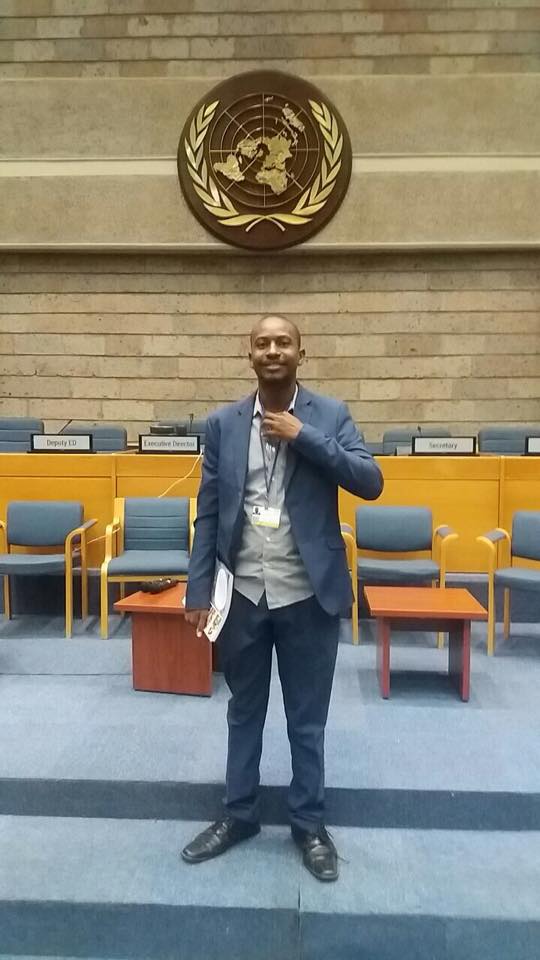Tatenda Mqetu
The Catholic Youth Network for Environmental Sustainability in Africa (CYNESA) perceives Zimbabwe energy problems are due to the lack of the will to prioritise, invest and transparently administer the sector as currently the state relies on intensive models to generate grid electricity for both the industrial and household sector.
Zimbabwe has 43% of its electricity supply from burning coal, while 57% comes from renewable energy, specifically hydropower systems by the Zimbabwe Electricity Supply Authority (ZESA) holdings, which are a state owned enterprises with less than 1% of electricity in Zimbabwe being produced by private companies, such as Nyangani Renewable Energy (Pvt) Ltd.
CYNESA Southern Africa Coordinator Tafara Dandadzi noted that the current energy crisis in Zimbabwe can be attributed to poor administration that includes looting and stalling of related projects which has seen the access to energy for most Zimbabweans being compromised as the power black outs have stalled production of the industry.
“Zimbabwe being an energy starved country by all means has no proper and full access to clean energy. Zimbabwe and Zambia benefit from the Zambezi river hydro power plant which faces major challenges among them the effects of climate change on the Zambezi River affecting rainfall patterns which in turn affects power production. On another front, due to corruption greed and mismanagement, Zimbabwe has experienced the looting and stalling of a solar power project and awarding of contracts to dubious individuals and entities with no prior knowledge nor experience in setting up mega solar power plants. Potentially Zimbabwe could have access to clean energy, but due to the political crisis, lack of accountability in the country, there is no access to clean energy,” said Coordinator Dandadzi.
Sustainable energy is readily available in Zimbabwe since solar energy is one alternative that the government can utilise to improve the country’s energy generation mix. Average solar insulation varies between 5.7 and 6.5 kWh m-2 day-1, geothermal power potential was established to be 50 MW since we are close to the rift valley, where a great potential for geothermal energy lies, but the country has not gone beyond the resource potential inventory work. The average wind speeds in Zimbabwe were estimated at 3.5 m s-1 at a standard height of 10 m. Bulawayo has average wind speeds of 4.4 m s-1 and some areas around the Eastern Highlands have prevalent wind speeds that range between 4 and 6 m s-1. Biomass the primary energy source for over 80% of rural households is accessed in woody biomass, grass, forage, shrubs, and plant and animal waste. Coal bed methane (CBM) has the potential to be a clean supply of energy to the Zimbabwe energy mix, as it contains fewer heavy hydrocarbons such as propane and butane, making it less polluting,
“The renewable energy potential in Zimbabwe is enormous. There are favourable conditions for solar, geothermal, coal bed methane gas a cleaner version of fossil energy and hydro power. However, due to corruption, mismanagement, maladministration and lack of accountability and greed, the potential is spent and is just but a story in the history books,” said Coordinator Dandadzi.
As efforts are being evaluated and implemented by different stakeholders in the energy sector. Some notable concerns have been tabled that include lack of consistent policies and regulatory frameworks to support renewable energy, technology and skill attributes of the system, which prevents the utilisation of the resource from reaching its full theoretical or practical potential.
The availability of the resource to be exploited, technology for design, installation, and performance, skills resource base for the design, installation, operation and maintenance of the technology, financial barricades subsequently high initial capital cost, high investment costs, high transaction costs, lack of access to capital, lack of disposable income, lack of purchasing power, availability of cheaper alternatives, socio-cultural obstacles are more critical to the dissemination of cooking related technologies. Many rural households did not adopt improved cook stoves, because the stoves did not satisfy other perceived needs of the user such as, lighting, space heating, drying of farm produce and preservation of agricultural seed, smoking of meaty products, and repelling flies and insects. Household members prefer certain cuisines that are prepared on a fire, such as cow heels/trotters, samp, beans and tripe.
“The major barriers to adoption of renewable energy in Zimbabwe are policy inconsistencies, corruption, the political crisis bedevilling Zimbabwe, lack of accountability and transparency, lack of rule of law and sovereignty of institutions. The political meddling is very unfortunate and a curse to the full implementation of and adaptation to renewables. Zimbabwe can promote renewable energy by removing unnecessary tax barriers that inhibit citizens from importing state of the art renewable equipment, encouraging Zimbabweans to invest in it, while the political crisis in the country must be addressed as no one has trust in the Zimbabwean institutions. No one would be willing to invest in Zimbabwe based on past experiences and observations. Thus the need for a government free of corrupt elements will be the sure way Zimbabwe can promote renewable energy and leaders must be keen or interested in renewable energy. It’s a no brainer to think renewable energy would be promoted,” said Coordinator Dandadzi.
